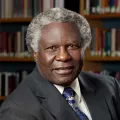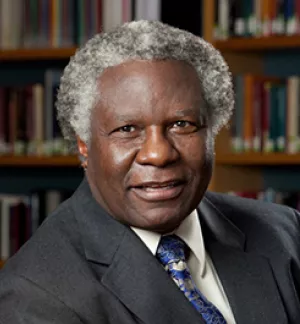IN AN unprecedented act of defiance, the newly anointed president of the former French colony of Togo, Faure Gnassingbe, is clinging to power despite international condemnation. To stifle opposition, he has begun shutting down privately owned radio and TV stations on varying pretexts such as claims of "inciting revolt."
In nearby Nigeria, the National Assembly has authorized President Olusegun Obasanjo to use his full powers, including military, to resolve the constitutional crisis. Obasanjo is the chairman of the Africa Union, which will not recognize governments that come to power by force.
The crisis raises a deeper concern about the role of the military in democratizing Africa. The time has come to rid Africa of oppressive armies and use military facilities and budgets to support social programs such as higher education.
The late Gnassingbe Eyadema led Africa's first post-colonial coup and served as a role model for many young military leaders anxious to usurp power. As a result, much of Africa degenerated into misrule, oppression, and economic decay.
Togo symbolizes the worst that could happen to Africa and is thus a test case for the future of the African Union. Condemnation is not enough. Swift action must be taken to rid the country of its military misadventures.
Existing military manpower and resources should now be redirected to more productive use such as maintaining the country's ailing infrastructure. Foreign support to Togo should be diverted to social programs as well.
Togo spends nearly 2 percent of its GDP on the military, amounting to nearly $32 million a year. The per capita income of the Togolese people is $270 a year.
Last year, students at the University of Lomé went on strike for the nonpayment of the annual $1.6 million owed to them by the government. They said they had not been paid their stipend since 2001.
In the meantime, the university remains crowded, supporting 14,000 students instead of the 6,000 students it was initially planned to hold. A second university at Kara is yet to fully come on stream. The trouble at the university is an indicator of the need to revamp the entire system of higher education to bring it in line with global aspirations.
Togo, like many other African countries, needs a population that is equipped in technical skills needed to solve practical problems. But resources are going into maintaining oppressive instruments such as the military. This means investing in more technical higher education as stressed in "Innovation: Applying Knowledge in Development," a report of the UN Millennium Task Force on Science, Technology, and Innovation presented to the UN secretary-general last month.
It will need to start revamping its curriculums and improving its teaching methods by creating linkages with the private sector. And above all, it must turn its attention to nurturing talented children.
There is a pioneering African example of the use of military facilities for development. In Rwanda, for example, the Kigali Institute of Science, Technology and Management, created in 1997 after the genocide, is playing a key role in building a new cadre of technical and entrepreneurial personnel. Kigali Institute is also involved in practical projects in energy, food processing, and transportation.
Rwanda is not alone in this league of the enlightened. Costa Rica abolished its army in 1948 and used part of the saved resources to support higher education. Today the Costa Rican army is made up of the teachers, scientists, workers, and other productive members of the country.
Africa can also make better use of existing resources. There are persistent complaints of shortages of science teachers across the continent. If these countries were at war they would be mobilizing every able-bodied person into national defense.
Technological illiteracy demands similar measures. Every able-minded citizen should spend part of his or her time teaching and sharing their expertise. Political leaders should lead the way and replace public speeches with practical lessons on how to improve human welfare.
Finally, classrooms without doors and windows are a common feature of the African educational scene. Improving educational infrastructure should be a priority public works program for African countries. The military should lead the way if it needs to remain relevant to society.
The crisis in Togo has also opened up opportunities for Africa to rethink the role of its national armies. It is time to start using military resources in social programs. The first step is to turn African armies into "development corps" while strengthening the hand of the African Union as a peacekeeping and democratizing force.
Calestous Juma is professor of international development at Harvard University's Kennedy School of Government. He is a lead author of "Innovation: Applying Knowledge in Development."
Juma, Calestous. “Harsh Lessons from Togo.” The Boston Globe, February 21, 2005



